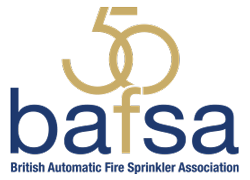Sprinklers for Life Safety
There also appears to be a growing consensus that sprinklers offer a highly cost-effective way of reducing the UK’s appalling fire death toll. It seems generally acknowledged that, while fire detection systems and smoke alarms probably save around 80 – 100 lives each year, this figure is unlikely to improve.
It is also clear that when its is the most vulnerable members of our society who die – the very young, the very old, the disabled, the infirm and those who use drugs and alcohol unwisely – only sprinklers can actually prevent fire deaths.
In the case of social housing, residential care premises, homes in multiple occupation, hostels and similar properties there now clear arguments that sprinklers offer the best chance of preventing deaths should a fire occur.
No Place Like Home?
Statistics reveal that for the year 2015 – 2016 in England alone, fire and rescue services attended over 31,000 fires in dwellings and 191 people lost their lives in accidental dwelling fires.
It is only when one examines the details of these tragic fires that one can begin to understand why it is that only active systems like sprinklers can prevent domestic tragedies. A disproportionate number of the very young, the very old, disabled people and – it has to be said, those affected by drugs and alcohol – are the people whose deaths feature in this grim annual tally.
One other group also features in the list of the most vulnerable and that is those who live in shared accommodation – sometimes known as ‘homes in multiple occupation’ or HMO’s. One calculation suggests that someone living in an HMO is six or seven times more likely to die in a fire than someone living in a single family dwelling.
Significantly, the Welsh Assembly has acted to prevent these needless tragedies and in legislation which received the Royal Assent in April 2011, regulations were introduced in 2013 which require sprinklers in new and converted care homes, certain hostels, homes in multiple occupation, and in all new dwellings including houses and flats.
In Scotland, legislation introduced in 2005 now requires all new sheltered housing and residential care homes to be fitted with sprinkler protection.
In England blocks of flats over 30m in height must be fitted with sprinklers and some local authorities are now encouraging the landlords who let rooms in HMO’s which are three or more storeys in height to fit sprinklers.
So, unlike smoke detectors which can only warn of the need for evacuation, sprinklers can actually save those who are unable to help themselves.




